Crowdfunding considerations
If you're here for the comics you can skip this one. I just have to get this rant off my chest! (I included fun illustrations though)
My Dutch publisher has just announced they'll be producing all their publications through crowdfunding from now on.
So what, you say? Crowdfunding has proven a viable business model for several publication houses already, so what's the news?
Well, they're the first in The Netherlands to do so, and since Holland runs a bit behind when it comes to crowdfunding, there has been some uproar on the socials about this news.
I feel kind of responsible.
I am the one who convinced my publisher to do this. I'm a firm believer in the boons of crowdfunding, for all parties concerned: artists, publishers and comics stores.
Instead of jumping in the brawl on social media, I'd like to state my case here, where I can control the conversation and refer to it later.
Before I begin, let me list my credentials:
1. I'm a comic artist who has done five successful crowdfundings
2. I ran a (very) small publishing house between 2002 and 2009
3. I worked in a comics store from 2000-2005
So I know a bit about all the sides concerned.
Here are some of the arguments that came up on Facebook recently that I'd like to address:
"Crowdfunding means the death of comic shops"
Many Dutch comic shops have been hovering on the brink of bankruptcy for years. Will crowdfunding steal their last customers?
No.
First of all: there is a wider problem here. Comics are competing with a lot more modes of entertainment than in the Olden Days, and they have fallen out of the public eye. Dutch comic artists are producing wonderful work, but it’s really hard to get noticed by a wider audience, let alone sell your work.
Second: 90% of people who have funded my campaigns have probably never set foot in a comic shop. They ARE the “wider audience” that we as a branch are trying to reach, and crowdfunding gives us that opportunity. The more people read comics, the more will find their way to comic shops.
Another consideration: at least three of my books would never have made it as a regular publication because they are too niche. They exist solely because of crowdfunding. Crowdfunding makes publications possible that would otherwise have been too risky. Yet these publications reach that “wider audience”, even if it’s small, and attract more people to comics as a medium.
We all benefit.
"A publisher who relies on crowdfunding should not be called a publisher but a crowdfunding coach"
The work of a publisher consists of many thinks: getting publications ready for print, communicating with printers, distributors and stores, making press releases, going to conventions, selling foreign rights, paying for storage - and now coaching crowdfundings gets added to that list.
I have experienced the woes of publishing firsthand and to be honest, I did not like it all that much! I like producing a comic book, but once it’s done, I want to put it on the shelf and get on with the next project. But this is where the work of a publisher truly begins.
So I'm grateful to have a cooperation with a trustworthy publishing house where I can leave that side to others and just focus on what I like: making comics and making my fanbase happy.
"Publishers take an unfair share of the crowdfunding money; they should run the risk of investing in a comic before it sells, because that's what publishing is"
No - see my answer above for all the things that publishing is.
And as for unfair division of money, that first of all depends on what is agreed. Here's what my publisher and I have agreed:
For a 48-page softcover comic album we run a crowdfunding for 5000 euros - about half of this goes to printing, handling and postage. This covers the costs my publisher would usually have to invest himself. The rest (last time it was over 3000 euros) is for me. This is pure income, I don't have any hidden costs (well okay, taxes). Whereas my publisher is still far from making a profit.
In fact: my crowdfunding typically sells about 150 books. My publisher prints about 300 copies, so he has extra to send to reviewers and sell to stores. Let's say he manages to sell 100 books this way - after deducting distribution costs and the stores’ share (and let's not forget: my 10% royalties!), he maybe retains 20% of the 10 euros that my album costs in shops.
That's a profit of a whopping 200 euros.
So yes, the division of crowdfunding money is not a fair one: I make at least 10 times as much as my publisher does.
"Crowdfunding is only for artists who are already big; more crowdfundings makes it more difficult for smaller artists to get noticed"
No. No no no.
Crowdfunding is EXACTLY fot smaller artists!
From the numbers above, you can see that I am far from a big player when it comes to book sales. In the course of my 25 years of comics making, I've come to realize that the real capital is in the audience I have, not in money. To be able to connect directly with people who like my work, both here in my newsletter on Substack and during crowdfundings on Voordekunst, is immensely gratifying and fulfilling.
And it doesn't take thousands of people. My theory is that any crowdfunding aiming for 5000 to 8000 euros will get there with 100 backers. So if you're a "small" artist with a modest following, try out a small project for maybe somewhat less than that - and bask in the positive reinforcement these people will give you. They can be the base for your next project, and you'll grow your own crowd!
"The public will get tired of too many crowdfundings"
This is an odd remark. Who exactly are “the public”?
Every crowdfunding attracts a different crowd. In my case, I have a hard core of about a 100 people who will support my work no matter what. Beyond that are the people who are interested in specific issues. My comic about Reverend De Heer attracted 234 people, half of them church workers. My queer comic Mijntje attracted an LHBTQI+ audience (and a grant!).
The beauty of crowdfunding is that it allows artists to connect directly with the crowd that's there for them and their specific project.
Will my fans get tired of too many crowdfundings? My last campaign was a bit of an experiment in that respect: it followed closely after my most recent campaign, so I expected it to attract slightly less people. But this was not the case: with 134 backers and 127% funded, Eureka was even more succesful than the 128 and 111% for the book before!
"With a crowdfunding people can't see what they buy and might get disappointed"
This is the image of a comics lover browsing physical books in their favorite store - and I totally get that. The feel, the smell; luckily people still want that experience and that's why I think comic shops will never completely disappear.
But it's not true that you don't know what you get when you back a crowdfunding campaign - quite the opposite. If the artist is doing it right, they give a very good idea of what they're making AND they keep their audience in the loop during the whole process. I personally like making my campaigns a fun ride, full of interaction.
"Why should a publisher do this, can't artists do it themselves?"
Sure they can!
I know many colleagues who are already doing this: owning and controlling their own work, running their own campaigns single-handedly and bypassing publishers and comic shops altogether.
Comic artists don't NEED publishers and stores anymore to reach their audience, and this is a very good development if you ask me.
I choose to work with a publisher since I don't have the time, space and energy to deal with a great part of the hassle that comes with publishing a book. Plus: my publisher makes sure my book WILL reach stores. And libraries!
Facts and numbers
Here are some more numbers to show what exactly I'm talking about:
Between 2020 and now I did five crowdfundings, totalling 40,685 euro, of which I pocketed about 20,000 euro.
About 500 different people have supported my campaigns. Thanks to the platform voordekunst.nl, I can reach them all with one click of a button and send them updates. Voordekunst calls this Crowdkeeping and even runs an Academy about it.
Every one of my campaigns sold about 150 books. Another 100 got sold in stores through the traditional canals. And, thanks to the fact that I have a publisher, my books also get picked up by libraries. Not unimportant!
These are small numbers. Of course I hope for that one big best seller that sells 1500 copies in one week (my very first book did! I got so spoiled by that!). Might that happen again, then my publisher and I draw up different terms. Communication and transparency are key.
In conclusion
Needless to say, I fully support my publisher’s decision to embrace crowdfunding (heck, it was my idea - it was about time he implemented it!).
Apart from all the above, let’s also consider that this is a way more elegant and sustainable way of producing books: printed locally, sent directly to buyers, no waste, no storage, no hauling books back and forth between locations to have them eventually end up in a shredder (this happens a lot!).
I maintain: crowdfunding is the future - and for my publisher Seb van der Kaaden of Personalia Publishing the future starts NOW!


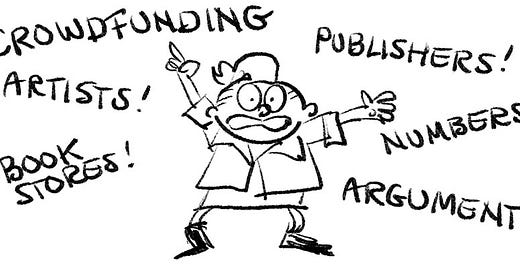



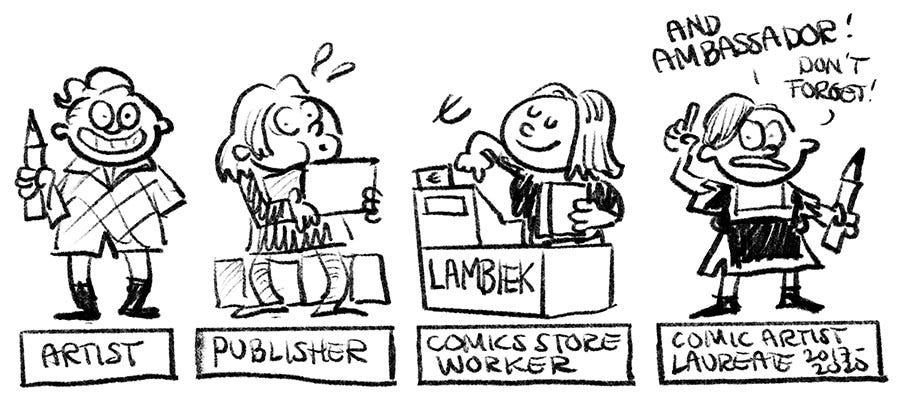
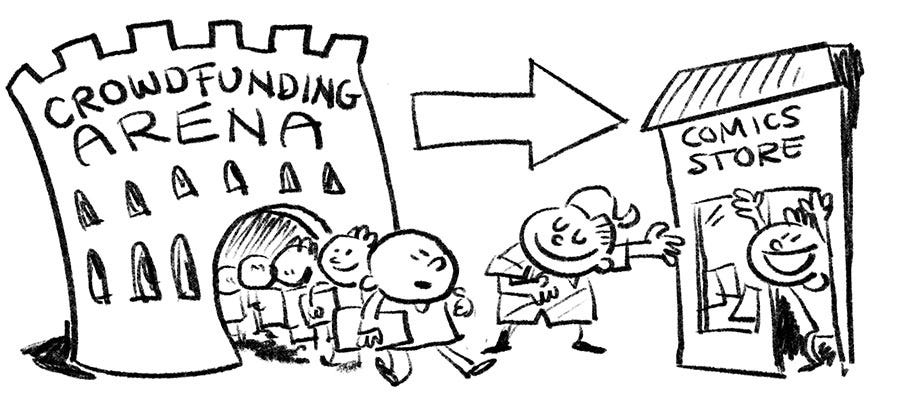
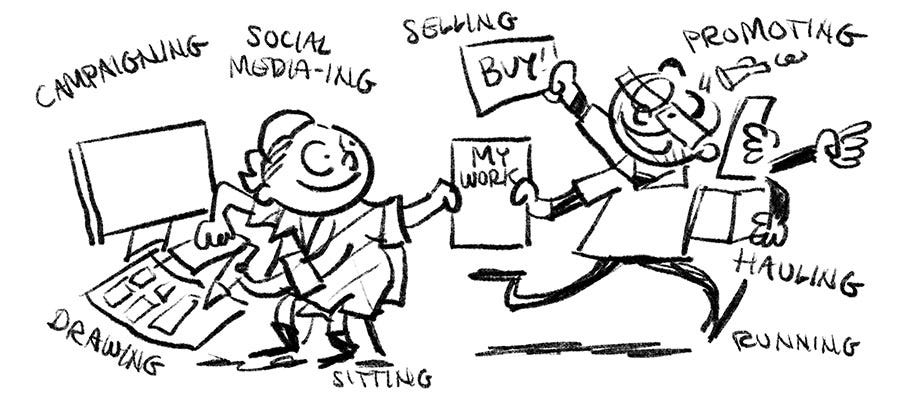
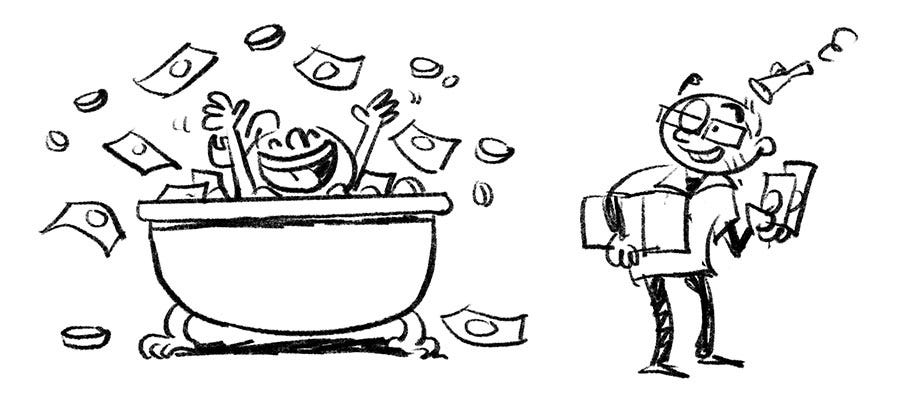
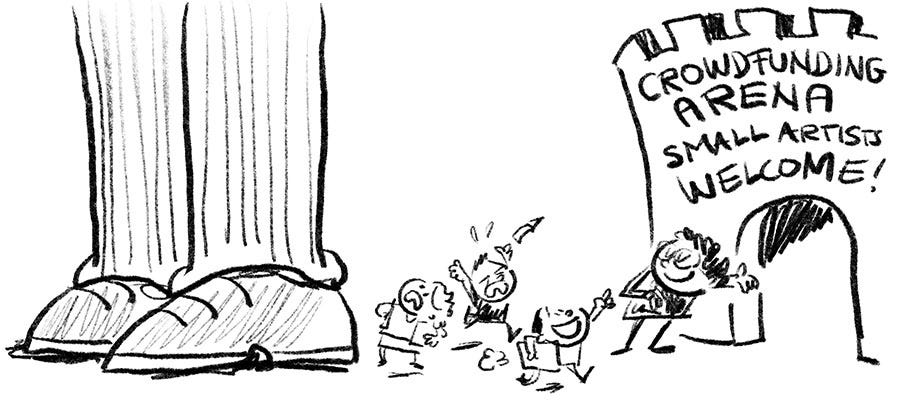
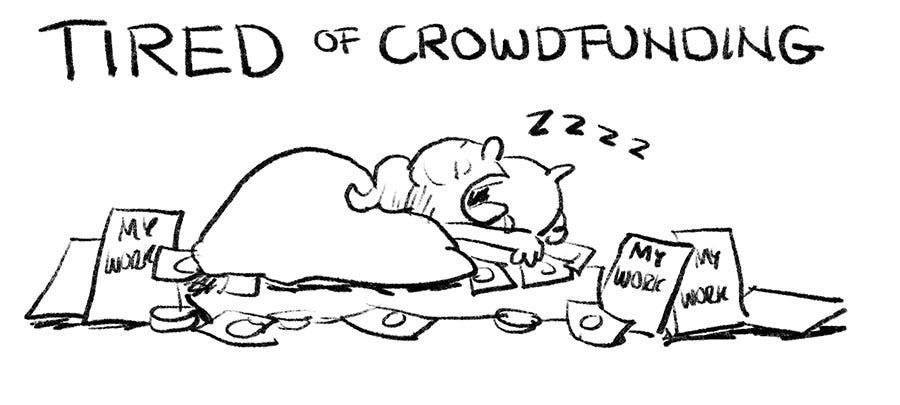
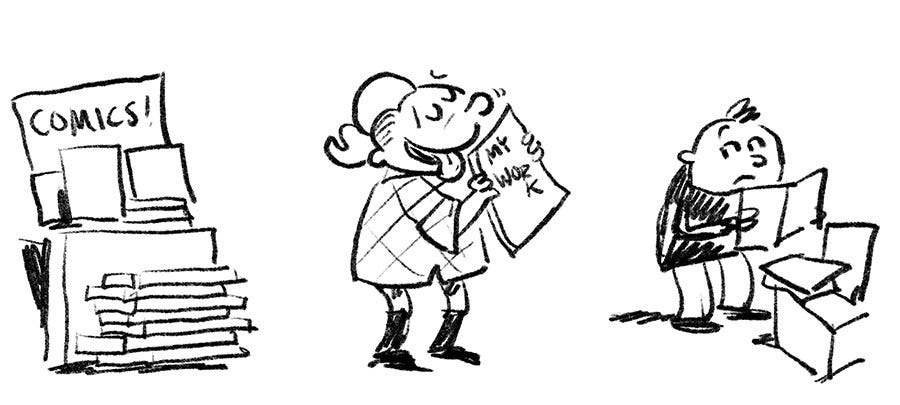
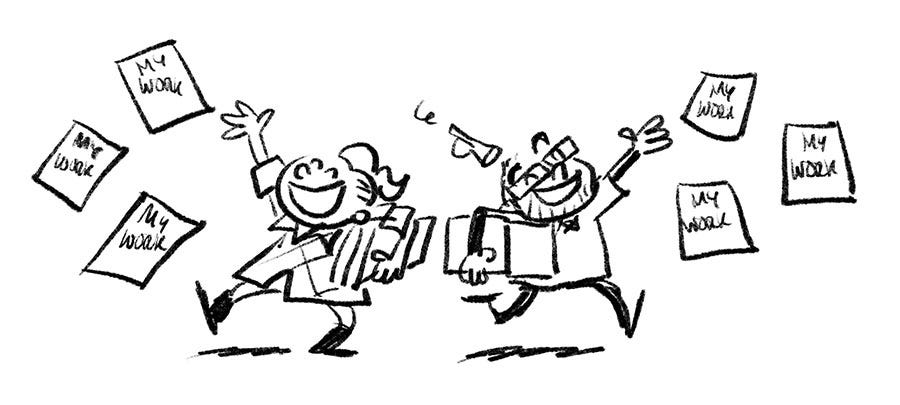
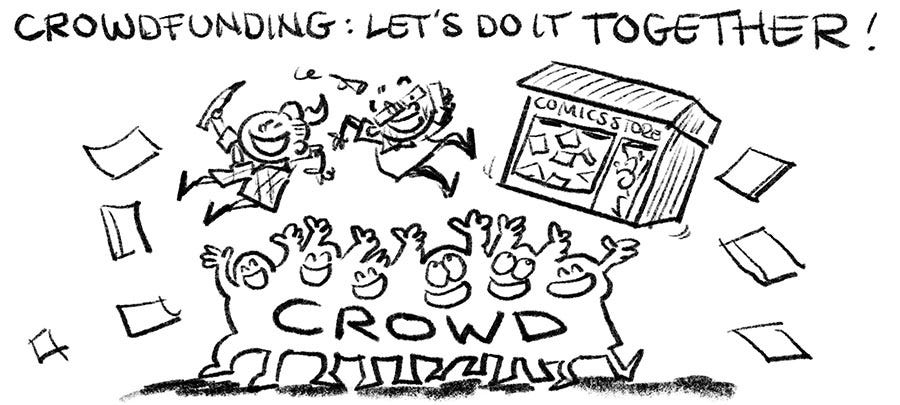
Well said! Your publisher was lucky to have your advice!
Wow, Margreet - I learned so much from this! Great post! 😊